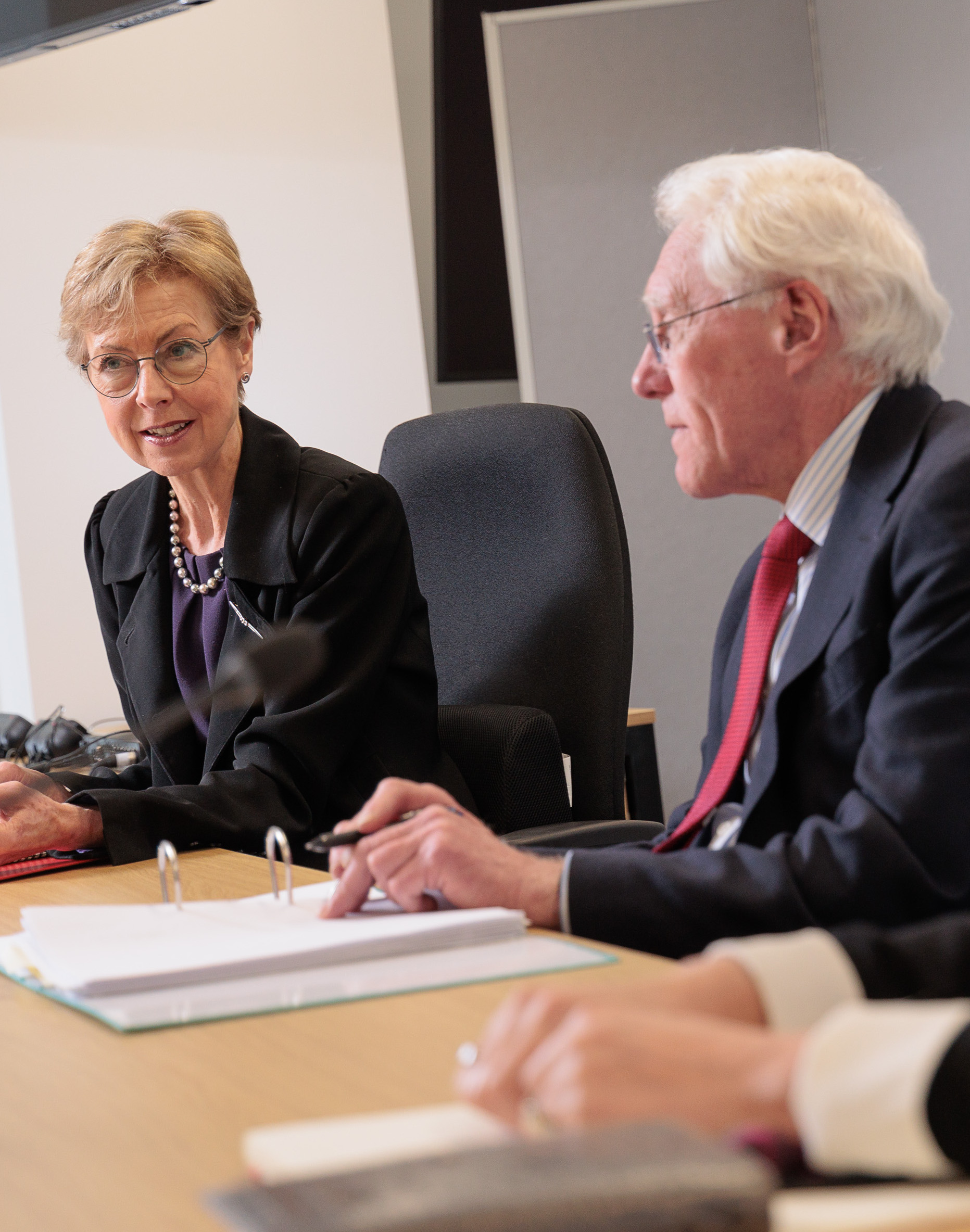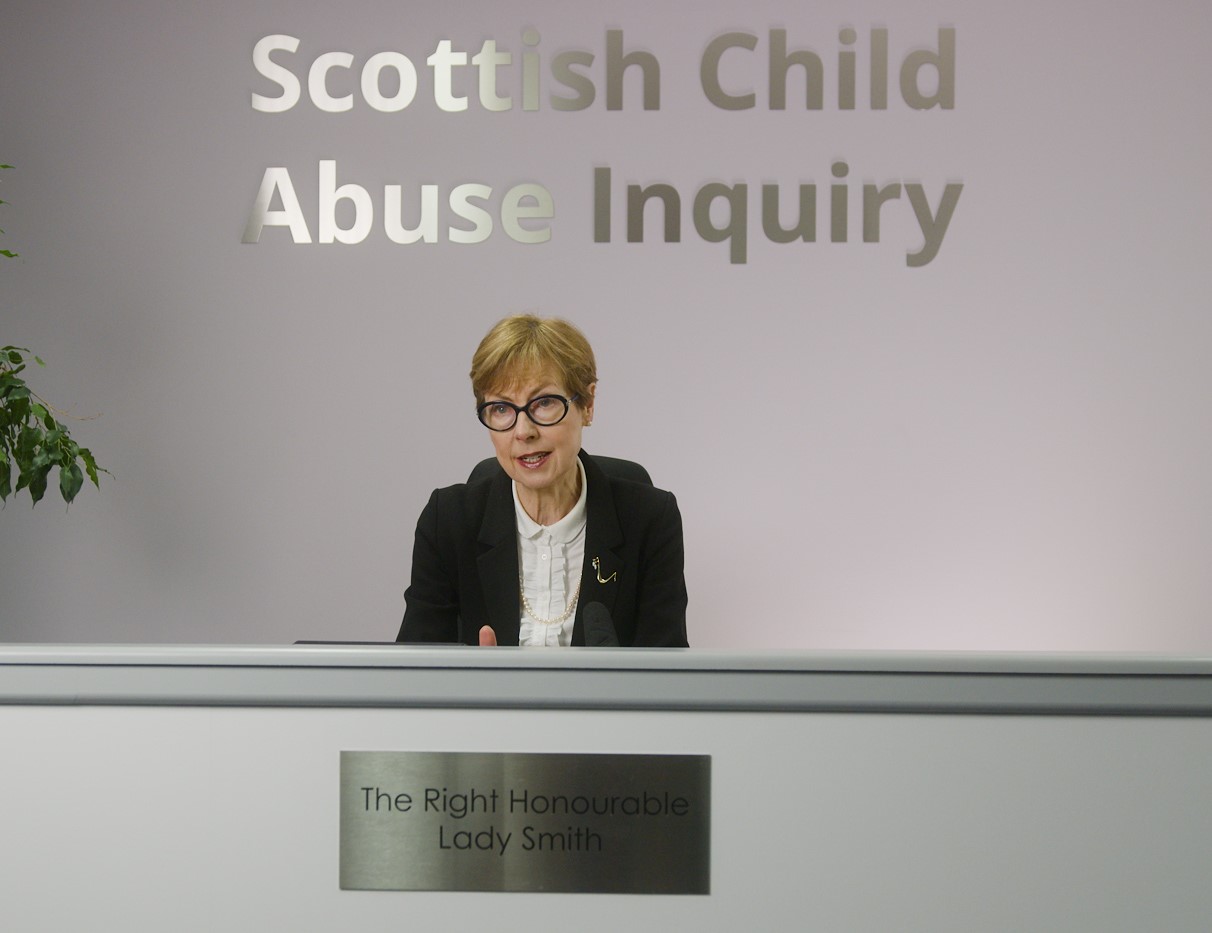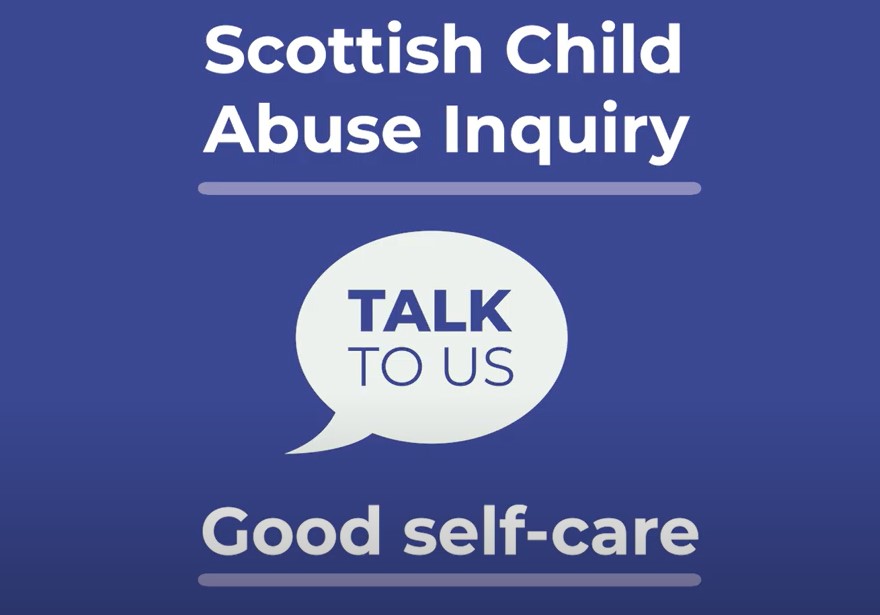Current Investigation
Phase 10 investigations: 'The provision of residential care for children and young people in establishments run by Local Authorities and establishments run by voluntary providers used by Local Authorities to place children in care'.

Evidence Hub
Search the Evidence Hub for documents including Witness Statements, Transcripts of Hearings, Case Study Findings, and Reports by Care Providers.

Our recently published news items
The most recent case studies, videos, and articles relating to the ongoing work of the Inquiry.
You can search for older news items on our News page.
Scottish Child Abuse Inquiry publishes sixteenth volume of case study findings
Lady Smith, Chair of the Scottish Child Abuse Inquiry (SCAI), has today, Wednesday 28 January, published her findings relating to the provision of residential care for children at Fettes College in Edinburgh.
Hearings Calendar – Phase 10
MORE...
Scottish Child Abuse Inquiry begins Phase 10 hearings
MORE...
Inquiry told how children were abused and afforded no dignity or humanity
On Friday, 17 October the Scottish Child Abuse Inquiry (SCAI) will hear closing submissions relating to Phase 9 of its investigations.
Beginning in April, this evidential section related to the provision of residential care in establishments for children and young people with long-term healthcare needs, additional support needs and disabilities.
This included residential schools which provided care for deaf or visually impaired children, including St Vincent’s School for the Deaf and Blind in Glasgow, Harmeny School in Midlothian, and the Royal Blind School and Donaldson’s School for the Deaf, both in Edinburgh.
Senior Counsel to SCAI, Ruth Innes KC said: “The Inquiry has heard evidence that children and young people suffered physical and sexual abuse.
“There was also serious emotional abuse and neglect, some children and young people were not afforded any dignity or humanity.
“Children and young people were placed in institutions for the purposes of containment or control of what was viewed as ‘challenging behaviour’.
“The regimes to which they were then subjected reflected that view. Abusive staff behaviour was, on occasion, mirrored by children. Corporal punishment was deployed contrary to government guidance, policy and legislation.
“In institutions targeted at the provision of education for deaf children, for part of the period, the use of sign language or gesture was physically punished.
“As a result, some children were unable to access the education which was being provided.”
Phase 9 spanned 43 days and heard evidence relating to 133 witnesses, relating to 17 institutions. This included the evidence of 63 applicants. Nearly 11,500 documents were in-gathered as relevant to the case study.
Themes which have emerged from the evidence include:
- Failures to listen to children or to allow them to communicate effectively to enable them to report abuse
- Inadequate staff training, particularly where institutions tried to adapt to survive
- Poor supervision and lack provision of appropriate sex education allowing sexually abusive behaviours to flourish
- Excessive and inappropriate use of restraint, which disproportionately affects children with additional support needs
- Excessive and inappropriate use of sedation
- A complete lack of, or ineffective, governance
- Leadership which was autocratic, dysfunctional or absent
- Gaps in inspection regimes
Phase 9 provided a unique challenge, both in terms of taking evidence from deaf or visually impaired witnesses and how that evidence could be made accessible to all members of the public during hearings.
A spokesperson for SCAI, said: “The inquiry started early engagement with support organisations across the sector to ascertain what requirements people would need and how we could best meet them. A series of meetings were held with key stakeholders in the 18 months leading up to the case study and a suite of easy read materials were produced, ensuring they were accessible to all and readily available, where appropriate.
“We spent significant time looking at best practice and ensured there were options, such as audio, Braille and British Sign Language (BSL). A lot of work was also done to ensure our website was as accessible as possible.
“It was also important evidential hearings were accessible, proceedings were interpreted in BSL for deaf witnesses and for any members of the public who are deaf.
“Our ambition was to make all necessary adjustments and support all witnesses to be able to share their experiences.”
A range of organisations have been involved in the provision of care examined in Phase 9, including the National Health Service, local authorities, voluntary providers, and private providers.
The case study explored the nature and extent of all forms of physical, sexual, and emotional abuse including the abusive use of corporal punishment and restraint.
Reporting systems and the wide-ranging impact of abuse were also, and continue to be, aspects of SCAI’s investigations, as are staff recruitment, training, and organisational culture.
Parties with leave to appear will make closing submissions in relation to the Phase 9 case study from 9:30 am tomorrow (Friday, 17 October). No evidence will be led on this date.
A BSL translation of the closing submissions notice can be found here

Share your experience
If you want to share your experience, we can explain what’s involved and support you at every step. We have made a series of videos with BSL translations that explain how the Inquiry works.
Our progress
Some statistics from the Inquiry's investigations.

Pages of evidence analysed

Witness statements published

Days of hearings to date

BSL Scottish Child Abuse Inquiry self-care
Reading or hearing evidence can be distressing. We recognise the importance, in these circumstances, of keeping us all – applicants, witnesses, members of the public, legal representatives, and our own staff – safe from harm. We have therefore prepared this leaflet to let people know about the possible effects they may experience after reading or hearing evidence. A BSL version is also available.
